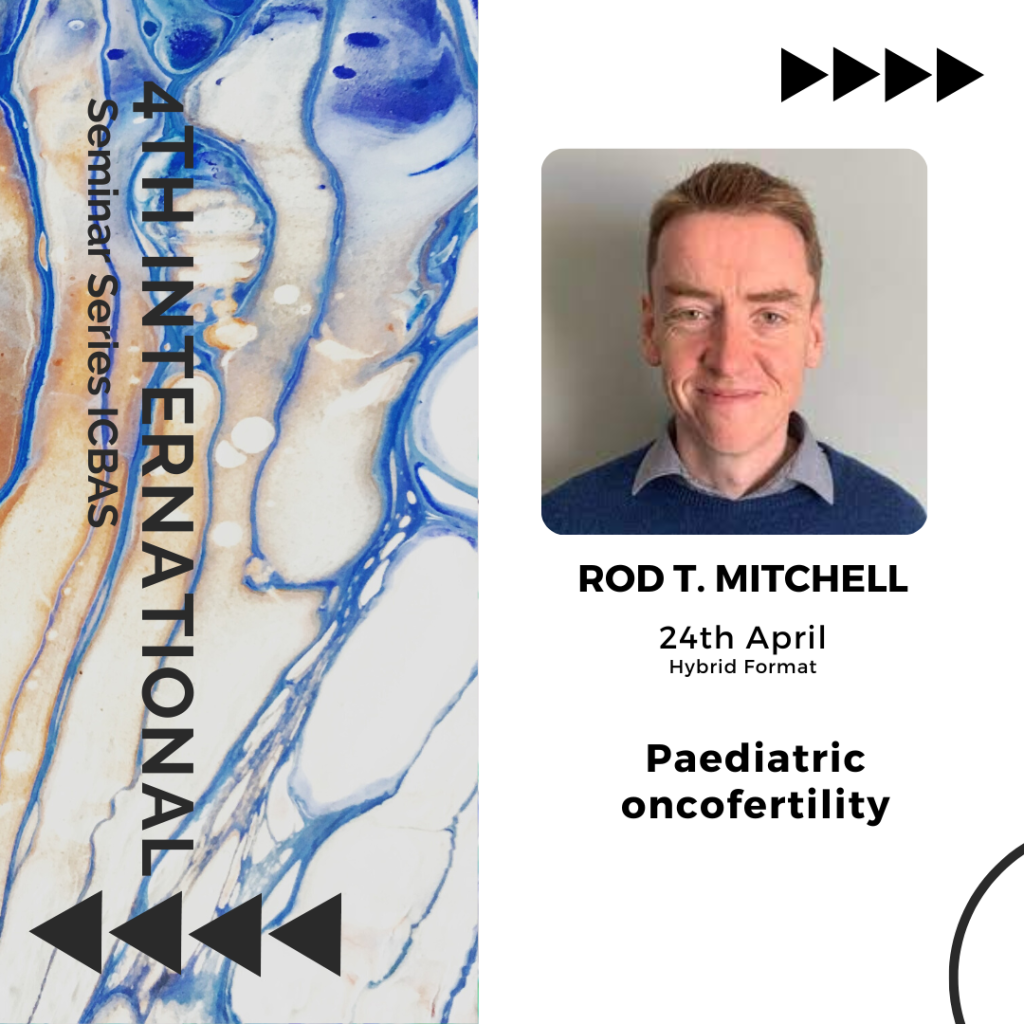
April 24th at 6pm (Lisbon Time) – Hybrid Format
Chair: Rosália Sá
Title: "Paediatric oncofertility"
Professor Rod T. Mitchell is Professor of Developmental Endocrinology and research group leader within the MRC Centre for Reproductive Health at the University of Edinburgh. He is also a Consultant Paediatric Endocrinologist at The Royal Hospital for Children and Young People in Edinburgh.
His research interests are focused on the role of the germ-stem cell niche on germ cell development in the fetal and early postnatal testis. This includes investigating the impact of proposed environmental ‘endocrine disrupting chemicals’ (EDC’s) on human fetal testis development, as well as on fetal testis development, particularly germ cells development, in relation to the causes of testicular cancer and infertility. In addition, Professor Mitchell has a clinical and research interest in fertility preservation for young male cancer patients. Edinburgh recently became the first UK Centre to develop a fertility preservation programme to store testicular tissue from young boys with cancer prior to their treatment, as part of the 'Edinburgh Fertility Preservation’ programme, for which Professor Mitchell is the lead for male fertility preservation.
Oncofertility, a new medical field at the nexus of reproductive medicine and oncology, was created to provide fertility preservation care for oncological patients. Oncofertility aims to implement fertility protection and/or preservation options for cancer patients, assisting patients in making decisions about fertility preservation and the method to be used, and dealing with associated psychological factors. Paediatric oncofertility, however, presents a unique set of challenges that adults do not face.
Professor Rod Mitchell will provide a brief update on recent scientific advances in the practice of paediatric oncofertility, with a focus on ongoing research involving prepubertal patients' gonadal tissue cryopreservation. He will also discuss recent advancements in the implementation of formal paediatric oncofertility programs, as well as barriers to providing fertility preservation in this patient population, such as consent, equity, and other ethical pitfalls. Finally, he will give us an example from Edinburgh's well-established paediatric oncofertility program.
Chair: Rosália Sá
Title: "Paediatric oncofertility"
